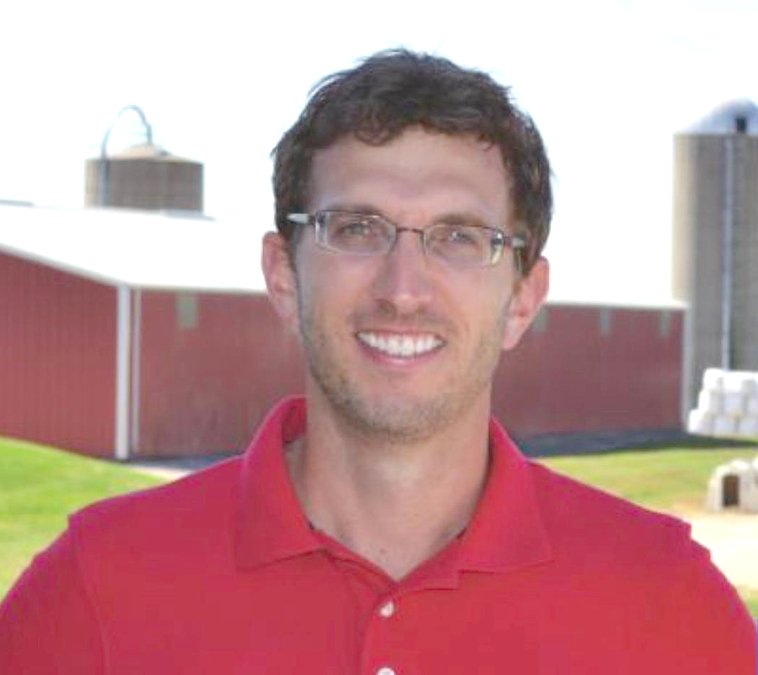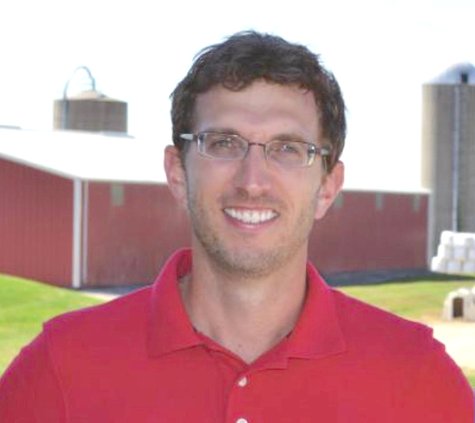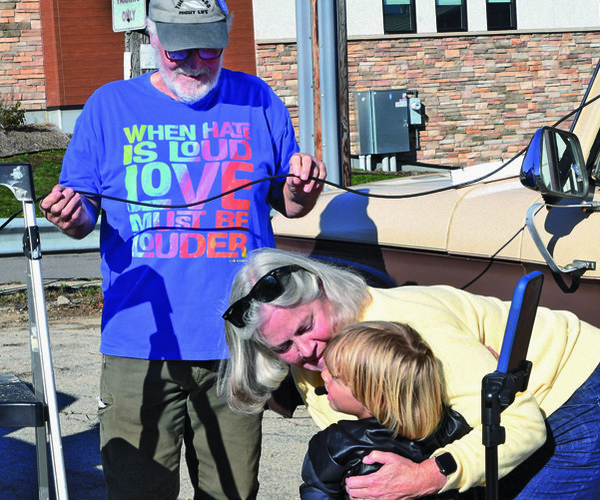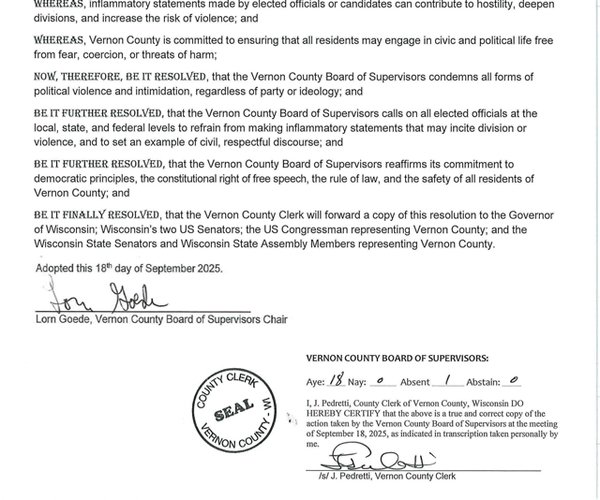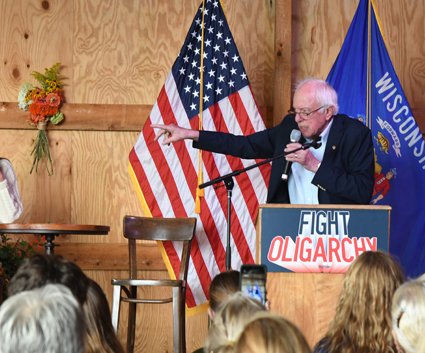It has been a dozen years since Travis Tranel was first elected to the State Assembly, and feeling there is more to be done, he wants to return and represent the people of southwest Wisconsin.
“As a lifelong resident of southwest Wisconsin and citizen legislator, I have worked with local officials, community leaders, small business, family farmers, and citizens to find common sense solutions to problems and fight for the 49th Assembly District,” Tranel stated. Reflecting back during the ribbon cutting for UW-Platteville’s new engineering building, Sesquicentennial Hall, Tranel said he was proud of the team effort that helped make this $55 million project a reality.
He said he likes helping people navigate the state bureaucracies and cut through government red tape to attain professional licenses, UI benefits, and state permits for projects.
As for the most important issue in this election, he said it was to continue to keep the tax burden low on residents, so they can weather the inflationary storm, “impacting all of us, caused by bad Washington D.C. policies. Working families cannot afford the high gas, grocery, and energy bills they currently face. To combat these challenges, we need to prioritize promoting policies that get people back into the workforce and address the worker shortage our employers face.”
In addition, he said the state needs to invest in education, help seniors, fund rural broadband, focus on child care, and support family farms.
If (re)elected, what would be one of the first bills you would look to write or cosponsor?
We will continue to put bills on the Governor’s desk that help our local volunteer first responders.
The state is seeing a record surplus of funds. At the same time, the formula put into place that local tax levy caps in the mid-90s has created very tight budgets for school districts, municipalities, and counties. What would you do about both of these items?
A good portion of the surplus should be given back to the tax payers in the form of tax relief to help them deal with high inflation, high gas prices, high food prices, and high energy bills. Seniors on fixed incomes are really getting hammered by these inflationary increases. We all need to continue to focus on funding our state’s shared priorities such as education, UW-Platteville, Southwest Tech, child care, mental health, rural roads, broadband, local communities, and SeniorCare moving into the next state budget.
What ideas/plans do you have specifically related to economic development would you push for the next term?
We need to continue to incentivize people to work. Sadly, one of the biggest obstacles our local economy currently faces is that it seems no one can find help. This is putting everyone under extreme pressure, including the people who are working, that are forced to pick up extra responsibilities.
In the United States Supreme Court Dobbs decision, the court decided to put legislatures in charge of deciding the parameters for abortion I their respective states, and an 1849 law went into effect that is allows only for a mother’s health exception to an abortion ban. What limits or exceptions would you push for it (re)elected? What is your stance on different forms of birth control methods, like IUDs, ‘Plan B’ emergency contraception, or even the traditional birth control pill?
I have always come at this issue from a pro-life position because of my personal faith and family experiences. My wife Steph and I are the proud parents of five beautiful children and can’t imagine my world without any of them. We love each of them dearly. Moving into the next legislative season bills will surely be brought forward to address state statues, and as I have always done, I will carefully listen to my constituents’ views regarding any suggested changes to state law.
Local municipalities and counties have been greatly impacted by individuals who have been arrested that are suffering from mental health crisis, both from few choices of where they can take them, as well as high costs. What would you look at doing to improve what local law enforcement have to deal with on this issue?
We will continue to work with healthcare professionals to develop solutions they feel may help. We also need to start addressing more of the root causes of some of these mental health issues. Right now, I believe it’s the economy. When it costs $75+ to fill up your minivan with gas and another $100 for a couple bags of groceries – it is no wonder why mental health is an issue.
What is one area that doesn’t normally get attention, that you wish to focus on in the next term?
The state needs to continue to strongly support our state’s kids; but we also need to look at ways to make sure parents have a strong voice when it comes to how their kids are educated and what they are learning. We need to make sure that students are succeeding across the state and master the basics of reading, writing, and arithmetic, so they can become successful and productive members of society.
Streamlining the teacher licensing credentialing system is something that DPI needs to work with the legislature on doing, so we can recruit and retain the best teachers to educate our students. Sometimes licensing barriers can discourage good teachers from seeking employment in a rural setting. The current process is somewhat convoluted and confusing.
Childcare is a very big issue in rural Wisconsin, as there are often not enough places for families to go for care, and that is impacting businesses, who either cannot recruit employees, or have to work around an employee’s schedule for their children. Do you have any ideas on how to help communities in this area?
It is time to review some of the government red tape around child care that is limiting the ability of people to provide daycare services. Our office will continue to listen and work with providers on identifying the most effective reforms to help improve the situation for families.
Given southwest Wisconsin’s rich agricultural history, is there anything specific you would be working on that would impact farmers or food processing?
We are constantly looking for ways to support our state’s $100 billion agricultural industry and will continue to do so. I would like to explore ways to discourage institutional investor ownership of Wisconsin farmland. Wisconsin farmers should own Wisconsin farmland, not Silicon Valley tycoons or foreign governments. Also, we will be reintroducing our “truth in labeling” legislation to make sure that real milk, cheese, and beef are accurately labeled.
What initiative, idea or plan would you make sure is debated, and hopefully acted up on this next term?
To help alleviate the current worker shortage many employers face, we need to make sure that government policy isn’t discouraging able bodied men and women from entering the workforce. This is important because many of our supply chain problems are created when small businesses producing components for products are not able to operate at peak efficiency to meet demand. These bottlenecks add to inflationary pressures. Helping people get quickly retrained through programs like Fast Forward, which provides customized occupational training for unemployed, underemployed, and incumbent workers, is key.
Public sector workers are important, and we need to make sure that they are retained in a highly competitive job market; otherwise, local and state public services may not meet the publics expectations. For example, I support more competitive wages for our state correction officers. Having toured our local correction facilities, it is clear they need to be compensated more competitively for the challenging job they do!
